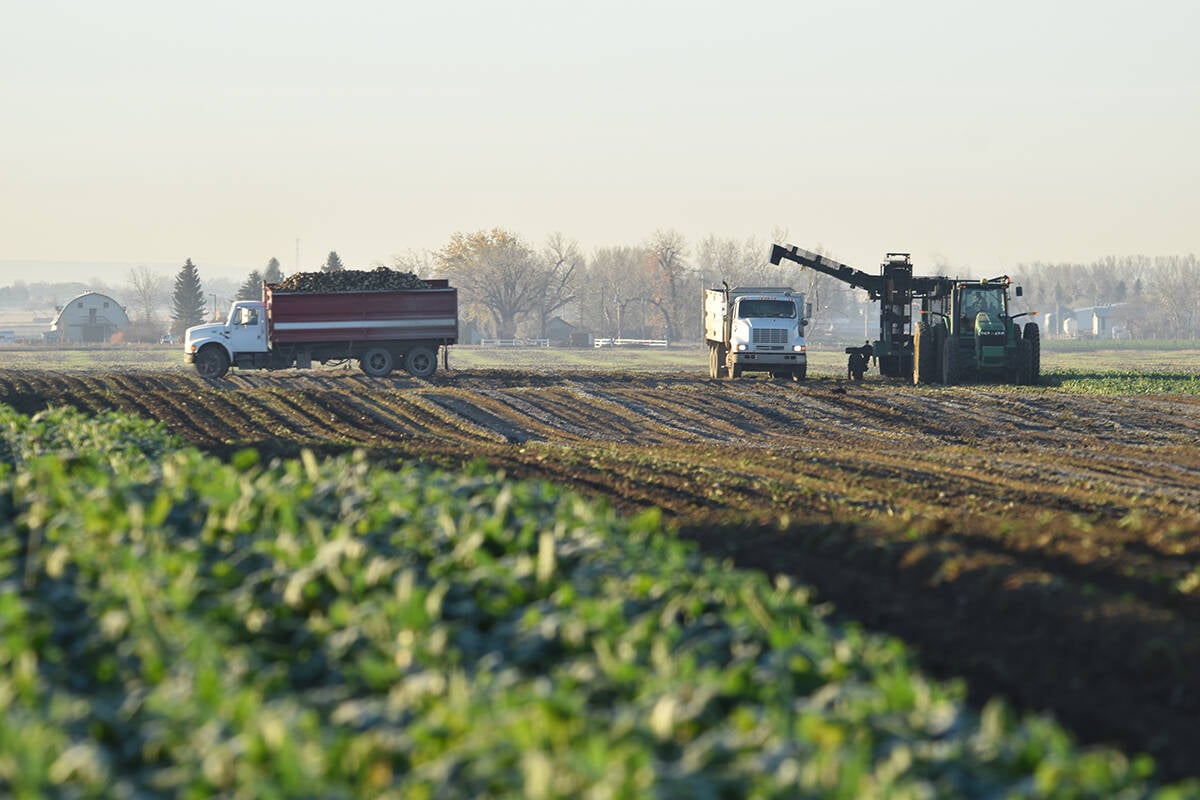As lower prices rock the American sugar beet sector, the Canadian industry is facing its own challenges.
Alberta’s 200 farm families normally grow 28,000 acres of sugar beets a year, producing the only source of 100 per cent Canadian sugar. However, they produce only eight to 10 per cent of the sugar sold in Canada.
Related story in this issue: Weight-loss drugs and health initiatives hammer a crop that usually provides an economic cushion
Read Also

The Organization for Economic Co-operation and Development lauds Canada’s low farm subsidies, criticizes supply management
The Organization for Economic Co-operation and Development lauded Canada’s low farm subsidies, criticized supply management in its global survey of farm support programs.
An additional 10,000 acres of sugar beets are grown in Ontario, but are exported to the United States.
Why it Matters: Sugar beet industry in Canada pivots due to lack of domestic sugar policy, changing consumption habits and world prices for sugar.
“The beet sugar sector in Canada remains a very important segment of the industry and is essential for accessing Canada-specific U.S. sugar quotas. It’s the only ‘originating’ sugar that can be exported to the two U.S. quotas, which is beet sugar from Alberta,” said Sandra Marsden, president 0f the Canadian Sugar Institute.
“It is only if there is additional demand in the U.S., and the U.S. refined sugar quota is increased, that Canadian-refined cane sugar can be exported to the U.S. WTO quota. There has not been an increase in the U.S. WTO refined sugar quota since 2020, so that is not likely in the foreseeable future.”
Late-settled negotiations between Alberta Sugar Beet Growers and processor Lantic Inc. lingered this year well into May, with a new five-year contract (opt-out option after three) signed May 9.
Contracted acres were lowered to 22,500, the lowest benchmark allowed for the duration of the agreement.
Southern Alberta exports approximately 25,000 tonnes of sugar to the United States, but most of what’s produced here (100,000 tonnes) is distributed to industrial and grocery markets across Western Canada from Alberta to Manitoba.
Alberta farm families produce about 900,000 tonnes of sugar beets a year.
Canadian sugar principally serves the domestic market with a large focus on food processing.
Alberta Sugar Beet Growers says the Canadian sugar market is expanding by two to three per cent a year.
“Many food processors locate in Canada to take advantage of competitive Canadian sugar prices to produce sugar-containing products for the Canadian and export markets,” said Marsden.
“Investment in sugar-containing product food processing continues to grow, most notably in Eastern Canada, so the future looks positive for the industry overall. The sugar refining industry in Canada is also making investments to meet future demand by increasing production capacity.“
Unlike most countries, Canada allows duty-free imports of raw cane sugar, while refined sugar imports face tariffs.
Canada is the only G7 nation without a Domestic Sugar Policy, which would regulate imported sugar and prioritize domestic sugar beet production.
However, while these policies protect the domestic sugar producers in other countries, they also result in higher prices for the consumer and sugar-containing product manufacturers.
Marsden said Canada’s lower sugar prices benefit Canadian consumers and encourage sugar-using food manufacturers to locate in Canada to compete internationally.
“Canadian refined sugar prices for both refined cane sugar and beet sugar track world sugar prices because Canada is an open market,” she said.
“This is very different from the U.S. sugar market, which is price supported through the government regulated sugar program. Canadian sugar prices fluctuate based on world prices.”
Canada’s refined sugar market is approximately 1.4 million tonnes.
Canadian refined cane and beet sugar represent about 94 per cent of the domestic market, with the balance being imports of refined sugar.
Refined cane sugar is produced at deep water ports near major population centres in British Columbia, Ontario and Quebec, given the economics of importing raw sugar in bulk cargo ships and refining the sugar close to consumers and food customers.
Sugar beet production and processing is in southern Alberta, far from west and east coast ports. The Rogers Sugar plant (Lantic) in Taber, Alta., remains the last sugar beet refinery in Canada.
September saw the world price of sugar fall by 4.1 per cent, reaching its lowest level since March 2021, according to the Food and Agriculture Organization’s Food Price index. The price per tonne for sugar beets is $66.30 based on a 17.3 per cent extraction rate.
Marsden said Canadian sugar demand has been “somewhat soft,” similar to what has been seen in the U.S., largely due to inflation and recessionary concerns as well as an increase in the use of drugs that suppress appetite.















